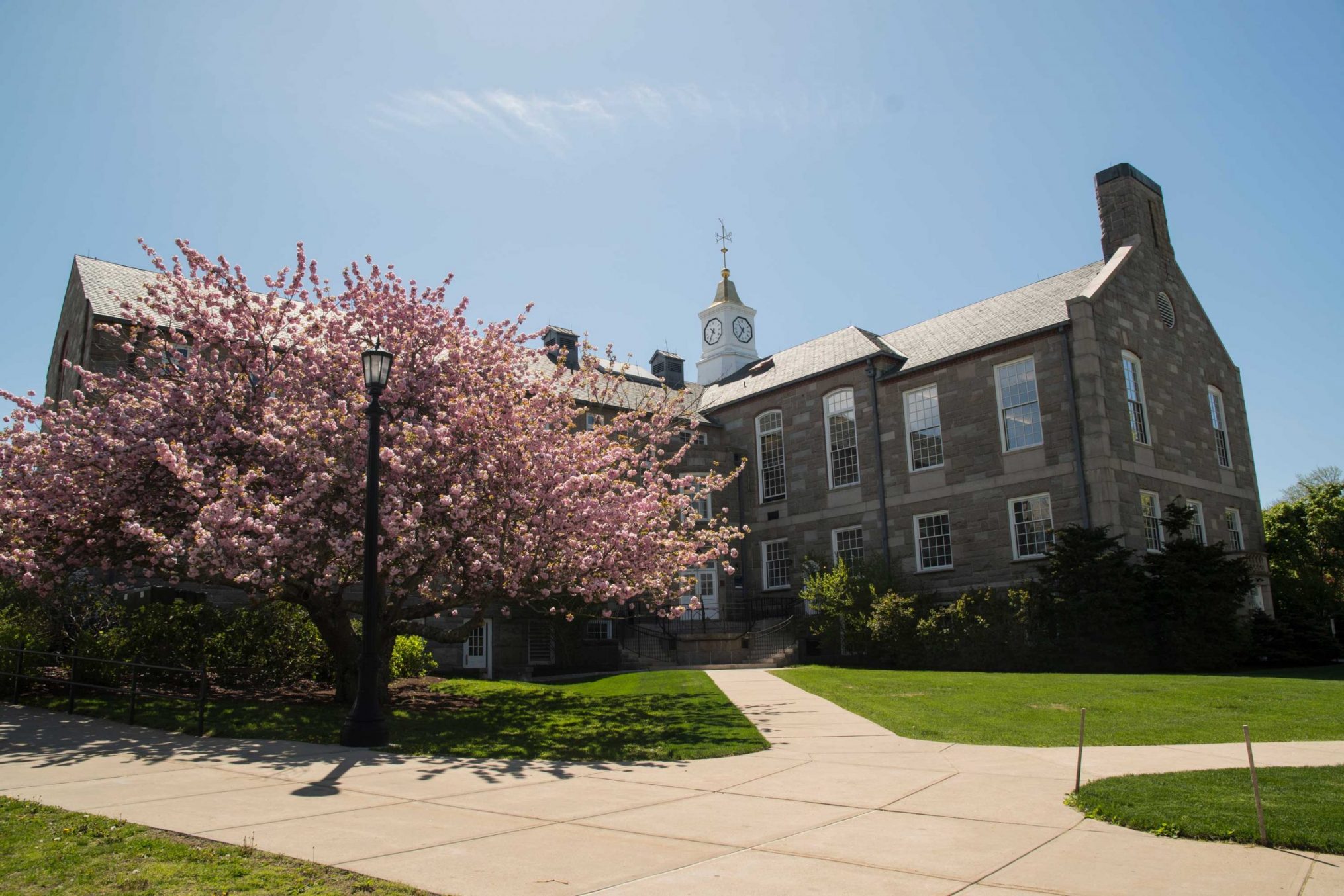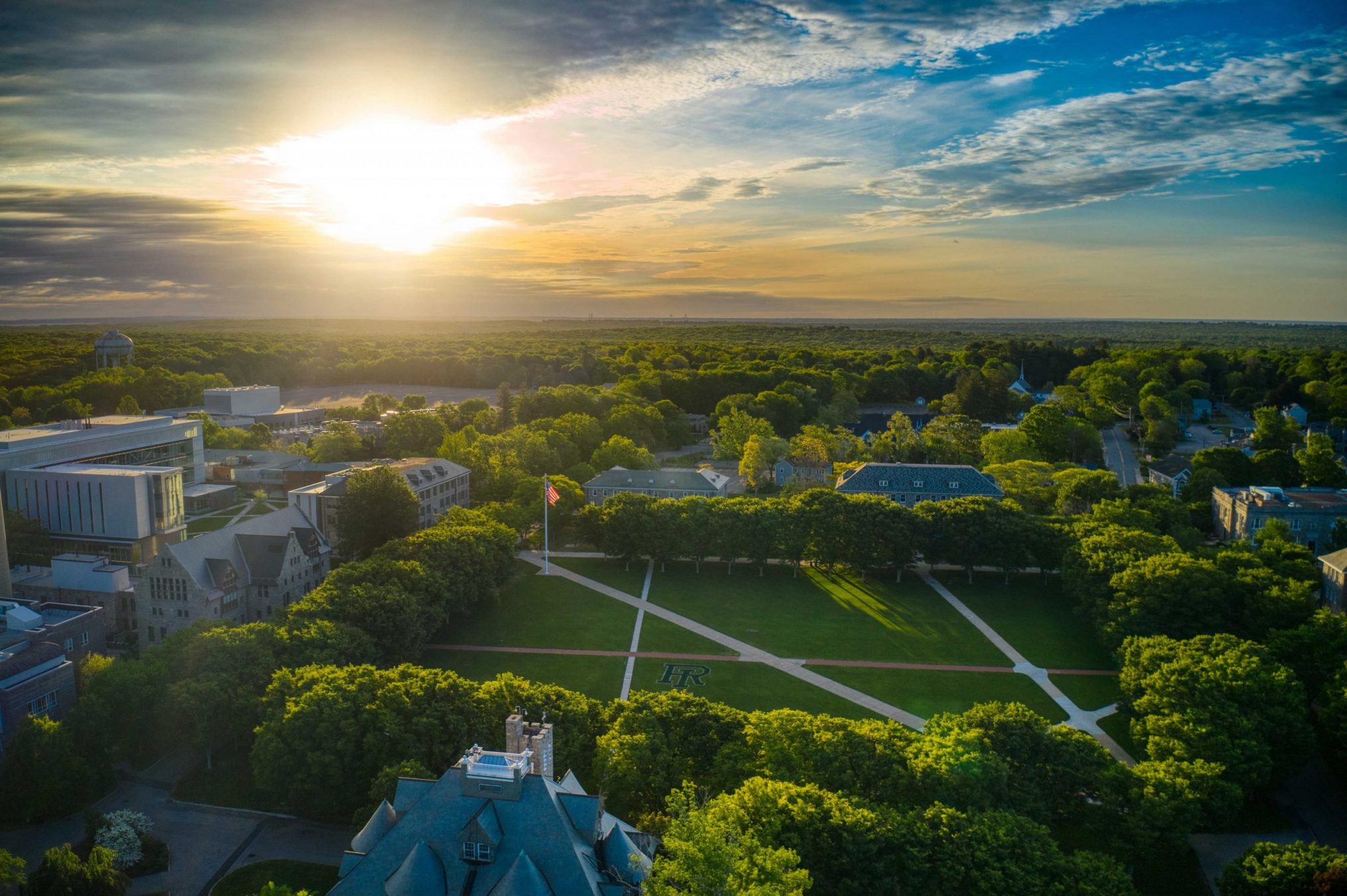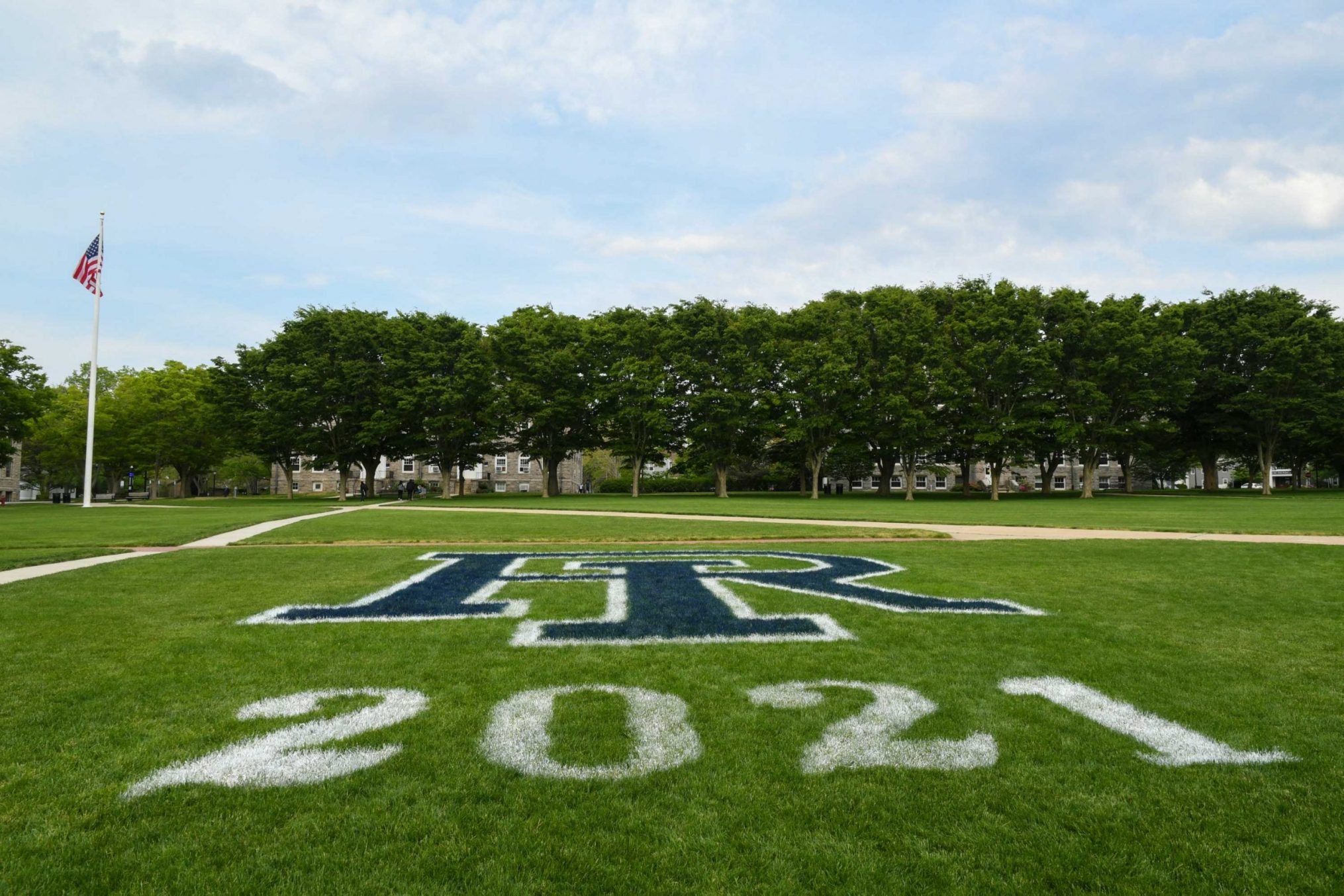How a newspaper article led to a strategic partnership International Partners of TU Braunschweig: The University of Rhode Island
TU Braunschweig works closely together with numerous international universities and cooperation partners. By defining strategic partners, the international relations become even more targeted. In our new series, we will introduce you to the universities with which strategic joint activities exist or are being expanded in the areas of study and teaching, student mobility, research cooperation and staff mobility. We will kick off this series with the partnership with the American University of Rhode Island (URI).

The main campus of the University of Rhode Island is located in Kingston. Other campuses have been established in Narragansett, Providence and West Greenwich, RI. Photo credit: Nora Lewis/The University of Rhode Island
An article in the academic journal “The Chronicle of Higher Education” marked the beginning of the partnership between the University of Rhode Island and TU Braunschweig: In the early 1990s, John Grandin, then Professor of German and Director of the International Engineering Program (IEP) at URI, wrote an article about the IEP, in which URI engineering students earn an additional degree in German as a foreign language. The article aroused the interest of former TU President Bernd Rebe. He promptly invited Professor Grandin and Professor Herman Viets, then Dean of Engineering at URI, to Braunschweig and established contact with Dr. Peter Nübold, then Head of the Language Centre at TU Braunschweig. The first meeting turned into a cordial relationship and further reciprocal visits followed.
In 1997, the two universities signed a cooperation agreement that has since enabled TU students to obtain a US and a German degree at Master’s level within the framework of a dual degree programme. In return, Bachelor students from URI spend an exchange year in Braunschweig. The agreement was the first of its kind between a German and a US university and in the following years became a model that many other universities adapted.
A successful project for German-American student mobility
Dr. Ute Kopka, responsible person at the International House for the dual degree programme with the URI, explains the advantages: “Students who complete the dual degree Master’s programme acquire a second Master’s degree without losing time, improve their foreign language skills, gain valuable intercultural experience and get advantages on the job market through the international experience. For our students, the waiver of the high American tuition fees is a further incentive.” URI students start their stay in Braunschweig with the International Summer Course and gain deeper insights into the German language and culture. Later, they get to know the German working world through an industrial internship. A win-win situation for all sides that is very popular with the students: the cooperation between URI and TU Braunschweig is at this point the most successful German-American university exchange programme in Germany – over 800 students have transferred back and forth between the USA and Braunschweig in the almost 30 years of the partnership.

URI is only a few hours’ drive from Boston and New York. In addition, it convinces with its location near the coast. Photo credit: Sean McVeigh Media
What URI students appreciate most about Braunschweig is the close connection between teaching and research as well as the great openness and helpfulness on campus. Sigrid Berka, Director of the International Engineering Program, and Niko Tracksdorf, Assistant Professor of German, recieve a lot of positive feedback about Braunschweig from their students: “Our students feel at home in the city very quickly, partly because of its manageable size and partly because of the great onboarding programme during the TU Braunschweig Summer School. In the mentoring programmes, they can also quickly make contact with German students. This is a great combination.” Braunschweig’s central location in Europe is also an advantage for the US students who like to travel. This is also appreciated by many TU students, as Boston and New York are only a few hours’ drive from Kingston away. Additionally, the University of Rhode Island convinces with its location near the coast.
Networking in all areas of research
But the partnership between the two universities is not limited to the joint dual degree programme: also in research, close contacts and cooperation with URI have developed over the decades in all faculties of TU Braunschweig. Professor Thomas Spengler, head of the Institute of Automotive Economics and Industrial Production, emphasises the importance of the partnership with URI: “We meet as equals and hold each other in high regard. There are many parallels between URI and TU Braunschweig. This leads to a very intensive exchange and a high quality of cooperation.” Spengler first visited his American colleagues in Kingston in 1999. During a research semester at URI, he deepened the contacts and is now an adjunct professor and member of the Graduate School of Engineering there. He has since developed a personal friendship with URI professor Manbir Sodhi. ” The partnership between our two universities is special because it covers all fields of research and is not just based on individual contacts. Our research and teaching cooperation is very close, for example through the joint supervision of theses, mutual visits and joint projects. For me personally, this cooperation is the most important of all,” emphasises Spengler.
In the upcoming years, the partnership in the area of research is to be systematically expanded. An important instrument for this is the Matching Funds Programme, in which both universities invest equally to initiate and promote new collaborations, research projects and joint publications. The aim of the programme is to strengthen the prominent position of the cooperation within the universities and to attract new disciplines and participants to the cooperation. The positive results of the Matching Funds programme have already influenced another strategic partnership of TU Braunschweig: The programme will also be implemented with Tampere University in the future.

University sports play an important role at URI: students can choose from a variety of offers and train either on a professional level or “just for fun”. The URI teams run in the colours dark blue, light blue and white. Photo credit: Nora Lewis/The University of Rhode Island
International cooperation in times of Corona
What began 30 years ago with a magazine advertisement was supposed to find its culmination in 2020: As part of the celebrations for the 275th anniversary of TU Braunschweig, the agreement on the strategic partnership was to be signed by both universities – but the Corona pandemic prevented this. However, the signing of the agreement is only postponed and contacts continued to be fostered intensively despite the pandemic, for example through digital networking events.
The Corona pandemic also forced a pause in student mobility – especially the US students were affected as they were unable to enter Germany. Traditionally, URI students travel to Braunschweig in September and learn the basics for the following semester at TU Braunschweig in the International Summer Course for German Language and Culture. Both sides are looking forward to hopefully toasting with a traditional Braunschweig “Yellow Beer” again this year. And there is still the signing of the strategic partnership agreement to come, which will mark the next step in the long-standing partnership. For Prof. Spengler, this is an important step: “I hope that our partnership will grow even closer as a result and that we will be able to further increase the quality of our successful student mobility. I also hope that we can link our researchers even more closely and start many more exciting research projects together.”
Text: International House/TU Braunschweig
